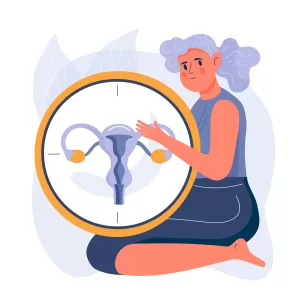Vaccinations play a crucial role in safeguarding both mother and baby during pregnancy. They help protect against infections that can pose risks to maternal and fetal health. At Currae Hospital, we emphasize the importance of timely vaccinations to ensure a healthy pregnancy and a safe delivery. Here’s what you need to know about essential vaccinations during pregnancy.
Why Vaccinations Are Important During Pregnancy
Pregnancy alters a woman’s immune system, making her more susceptible to certain infections. Additionally, some infections can adversely affect the developing baby, leading to complications such as preterm birth or developmental issues. Vaccinations provide crucial protection against these risks, ensuring both maternal and fetal health.
Essential Vaccinations During Pregnancy
Flu Vaccine (Influenza Vaccine)
- Importance: The flu vaccine is highly recommended during pregnancy, especially during flu season. Pregnant women are at higher risk for severe complications from influenza, including pneumonia and hospitalization. The vaccine helps protect both the mother and baby from these risks.
- Timing: Ideally administered before flu season starts, but it can be given at any time during pregnancy.
Tdap Vaccine (Tetanus, Diphtheria, and Pertussis Vaccine)
- Importance: The Tdap vaccine protects against whooping cough (pertussis), which can be particularly severe in newborns. By getting vaccinated, mothers pass protective antibodies to their babies, reducing the risk of pertussis in the first few months of life.
- Timing: Administered between 27 and 36 weeks of pregnancy, preferably during each pregnancy.
COVID-19 Vaccine
- Importance: The COVID-19 vaccine is crucial in protecting pregnant women from severe illness due to the virus. It also helps protect the baby from potential complications associated with COVID-19.
- Timing: The vaccine can be administered at any stage of pregnancy. Consult with your healthcare provider to discuss the best timing and any additional booster doses.
Hepatitis B Vaccine
- Importance: The hepatitis B vaccine is recommended if you are at risk of hepatitis B infection or if you are not already vaccinated. Hepatitis B can be transmitted from mother to baby during birth, potentially leading to chronic liver disease.
- Timing: The vaccine series should be completed before or during pregnancy, depending on your vaccination history and risk factors.
Varicella Vaccine (Chickenpox Vaccine)
- Importance: The varicella vaccine is important if you have never had chickenpox or been vaccinated against it. Chickenpox during pregnancy can cause serious complications for both mother and baby.
- Timing: This vaccine is typically administered before pregnancy. If you are pregnant and not vaccinated, discuss the timing with your healthcare provider, as vaccination should occur after delivery.
Rubella Vaccine
- Importance: The rubella vaccine is usually administered before pregnancy to prevent rubella infection, which can cause severe birth defects. It is not given during pregnancy but should be completed before conception.
- Timing: Ensure your rubella vaccination status is up-to-date before becoming pregnant.
Consultation and Coordination with Healthcare Providers
Before receiving any vaccinations during pregnancy, consult with your healthcare provider at Currae Hospital. Your provider will assess your health history, current pregnancy status, and potential risks to determine which vaccinations are appropriate for you. Coordination with your healthcare provider ensures that you receive the most relevant and timely vaccinations for your specific needs.
Additional Considerations
- Review Immunization Records: Ensure that your immunization records are up-to-date and discuss any necessary updates with your healthcare provider.
- Vaccination Timing: Some vaccines are best administered at specific times during pregnancy. Follow your healthcare provider’s recommendations for optimal timing.
- Side Effects: Vaccinations are generally safe, but like any medical intervention, they can have side effects. Discuss potential side effects with your healthcare provider and understand what to expect.
Currae Hospital’s Support for Vaccinations
At Currae Hospital, we are committed to supporting you through every aspect of your pregnancy, including vaccinations. Our services include:
- Comprehensive Vaccination Guidance: Expert advice on which vaccinations are needed and when to get them.
- In-Hospital Vaccination Services: Convenient access to vaccinations during your hospital visits.
- Education and Resources: Information on the benefits and safety of vaccinations during pregnancy.
- Personalized Care: Tailored vaccination plans based on your health history and pregnancy status.
Conclusion
Vaccinations during pregnancy are essential for protecting both the mother and the baby from preventable diseases and complications. Staying informed and up-to-date with recommended vaccinations ensures a healthier pregnancy and a safer start for your baby. At Currae Hospital, we provide expert guidance and support to help you make the best choices for your health and your baby’s well-being.





